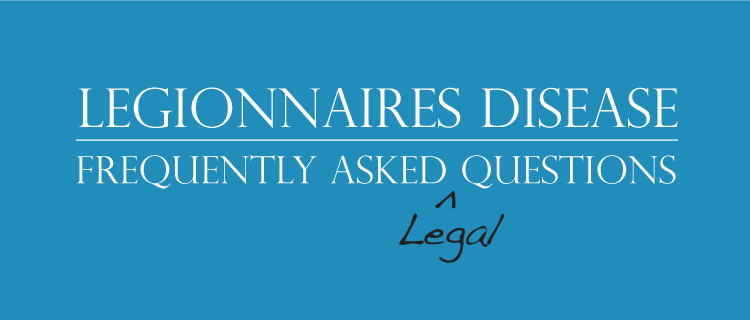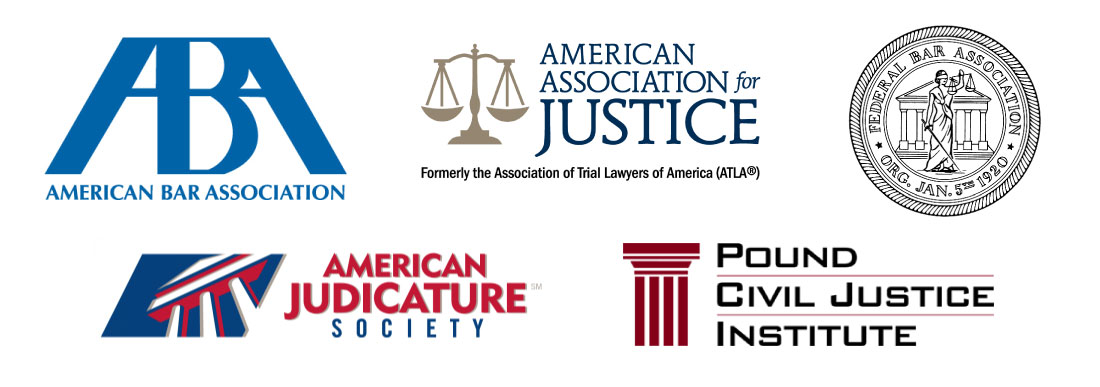Legionnaires’ Lawsuit Frequently Asked Legal Questions
Should I contact the Center for Disease Control?
Generally when a diagnosis of Legionnaires’ disease (legionella) is made or an outbreak identified, the physician is required to notify the CDC. Nevertheless, it may be wise for you to also make a call to the CDC about the diagnosis so there is a record of the family notifying the CDC.
How can someone else be liable if I or my family member contracted Legionnaires’ disease?
No one is automatically liable just because someone contracted Legionnaires’ disease. Obviously. But, if the person or company didn’t properly monitor or maintain the water source from which the disease was contracted, then they could be liable.
Water sources used by the public need to have proper disinfectant and pH levels necessary to kill germs like legionella, the bacteria responsible for Legionnaires’ disease. For example, specific chlorine levels in public water sources have to be maintained, and checked regularly. If they weren’t, and an outbreak of legionella occurred, then a jury might properly find the water source wasn’t properly monitored and maintained.
Is filing suit quickly necessary once one suspects possible negligence associated with Legionnaires’ disease?
Filing before a statute of limitation deadline is crucial. Filing quickly, even if a deadline isn’t imminent is usually important, but the most important thing is filing “smartly.”
The lawyer filing a suit based on Legionnaires’ disease should gather and review the key information before filing suit, to make sure that the filing is well crafted. Obviously, the pleadings need to accurately reflect the facts and law. But there are often a host of other strategic considerations that loom in the background.
In general, however, it’s usually smart to file a suit as soon as possible because many documents and company records can only be requested after filing a lawsuit, and getting key documents is always crucial in cases involving the question of how water supplies were maintained.
Will there be a need for experts on Legionnaires’ disease?
Yes, usually experts are a crucial component in establishing causation, as well as the significance of the illness, its future impact upon the family member. Learn more about the importance of expert opinions and witness testimony in a Legionnaires’ claim.
What are the costs associated with pursuing a Legionnaires’ disease case?
It is important to note that the plaintiff (or individual exposed) pays nothing out of pocket. Cases are typically handled on a contingency fee basis, where lawyer fees and costs come out of a settlement. That being said, pursuing a Legionnaires’ lawsuit can be expensive (for the attorney taking on the case). Gathering corporate documents promptly and efficiently is crucial, as is retaining reputable and experienced experts to help prove liability and damages. Cutting corners and doing things “on the cheap” isn’t a viable option in these kinds of cases.
What records and documents are important?
Unfortunately the most important records are the ones that are not available to you. In Legionnaires’ cases the company records are the most critical, and can only be obtained through subpoena or court order.
What is a Protective Order and why are they involved in a claim for Legionnaires’ disease?
Legionnaires’ disease claims will typically require the plaintiff’s attorney to get the defendant to produce highly sensitive documents during the discovery and investigation process. That, in turn, will sometimes require a protective order. The court ultimately makes that decision based on many factors.
Should I gather medical records?
Generally, that’s an unnecessary effort for you or your family to undertake. Focus on helping your family member who is sick, and don’t add to your already high level of stress. Once a lawyer is involved in the process a more complete request for medical records can, and should, be made.
Are photographs of the family member that is sick necessary?
The most important thing is for the patient to get rest and follow the doctor’s treatment recommendations. That said, if there are photographs that help folks understand, through visual evidence, the actual impact on the family member at the time then obviously those are helpful.

